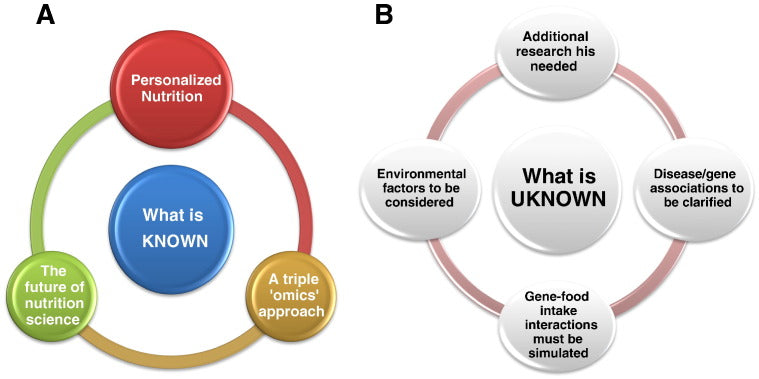
The Emerging World of Nutrigenomics
Picture this: You’re in your kitchen, about to choose between a grilled salmon fillet and a plate of pasta. Instead of asking your waistline, your taste buds, or your conscience, you ask your genes. Yes, your genes—those molecular instruction manuals hidden in every cell. They just might know better than anyone which foods will keep you slender, strong, and satisfied. This isn’t science fiction. This is nutrigenomics, an audacious new field that aims to match your unique genetic blueprint with the perfect diet.
If traditional nutrition is a mass-marketed suit off the rack, nutrigenomics wants to be your custom tailor. It’s about saying goodbye to “one-size-fits-all” diets and hello to the idea that what fuels you should be as personal as your fingerprint. After all, two people could eat the same breakfast every day—one stays fit as a fiddle while the other struggles to shed a single pound. Why? Enter your genes.
From Macro Guesswork to Molecular Mastery
Nutrigenomics emerged as scientists pulled the curtain back on the Human Genome Project. We learned that, yes, all humans share a common script of DNA—but that script has footnotes, edits, and special instructions unique to each of us. Now, researchers are bending the lens of molecular biology to focus on how your genetic variants interact with the food you eat. Instead of “eat less sugar” or “skip the carbs,” we’re talking about precise adjustments—tweaking the balance of fatty acids, tailoring your antioxidants, or dialing in the right proteins to shift your body’s metabolic machinery from chaos to harmony.
Imagine nutrients as tiny messengers that can whisper sweet nothings—or stern warnings—into the ears of your genes. Certain genetic variants might respond beautifully to a Mediterranean diet, while others might need a nudge in the form of more omega-3s, or less gluten, or a cunning cocktail of micronutrients designed to keep inflammation at bay. This is not a hunch. Early studies have shown that specific gene–diet interactions can influence obesity, diabetes, cholesterol levels, and inflammatory diseases. It’s as if the human body comes with a series of hidden dials, and nutrigenomics gives us the wrench.
Where We Stand Today
Before we pop champagne corks and declare nutrigenomics the new gold standard, a reality check: the research is still unfolding. Like explorers charting a wild continent, scientists are mapping out which genetic polymorphisms matter and which dietary patterns they prefer. A recent analysis of 38 “nutrigenomics genes” found no definitive links to common diet-related diseases. Disappointing? Hardly. Consider it an invitation—nature telling us, “Keep looking, you haven’t found my secrets yet.”
More encouraging is the handful of sparks we’ve seen. For example, certain variants of the APOA5 gene appear to influence triglyceride levels more dramatically depending on your diet. Other gene-diet combos are emerging, hinting that we’re on the right track but haven’t cracked the code. It’s early innings.
Still, the train has left the station. A thousand scientific papers have piled up since 2001, each pushing the boundaries of what we know. Surveys show health professionals and the public warming to the concept. Yet, like self-driving cars or lab-grown steaks, nutrigenomics isn’t ready to be part of your Monday morning routine—at least not yet.
High Hopes and Hard Questions
If nutrigenomics becomes mainstream, the world’s grocery aisles could look very different. Foods may be marketed not just for fiber or protein content, but for how well they match certain genetic profiles. This might sound thrilling—or eerie.
The Future Is Unwritten—But I’ll Take a Glimpse
Nutrigenomics is still young, a toddler taking its first wobbly steps toward an era of precision nutrition. We stand at the threshold of a revolution that could turn “food as medicine” into more than just a saying. With time, more studies will strengthen the link between gene signatures and dietary advice, giving health professionals the confidence to recommend not just what’s good for everyone, but what’s great for you.
Until then, consider this: what if the key to preventing chronic diseases, boosting energy, and even extending our lifespans lies in a better understanding of the genetic hand we’re dealt—and learning to play it well with the right foods? The promise is grand, the path unpaved. But one thing’s certain: the future of nutrition just got a whole lot more personal. And that, my friends, is something worth chewing on.
These statements have not been evaluated by the Food and Drug Administration. This product is not intended to diagnose, treat, cure or prevent any disease. This article is for informational purposes only and is not a substitute for professional medical advice. Always consult your healthcare provider regarding any health concerns or before starting new supplements.
